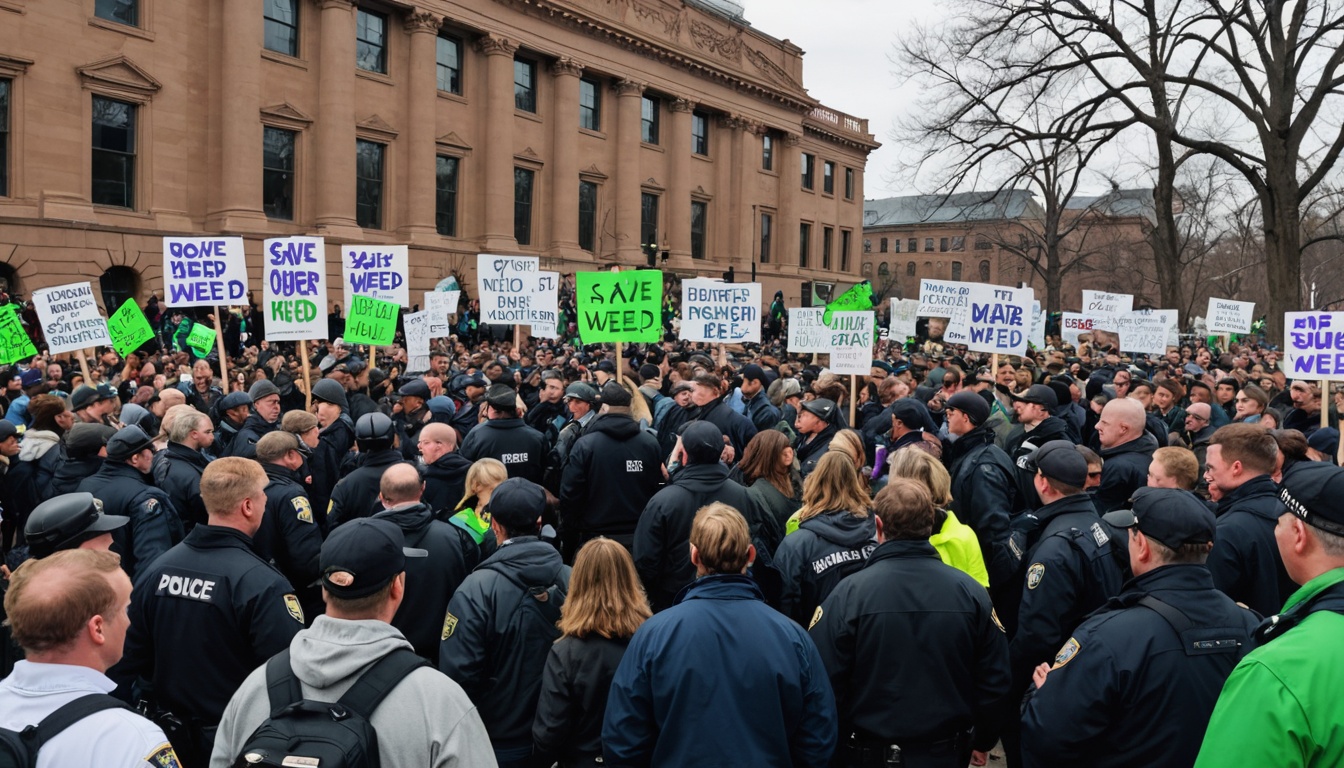Massachusetts Ballot Initiatives Seek to Repeal Recreational Marijuana Sales
Two new ballot initiatives have been filed in Massachusetts, aiming to repeal parts of the state’s laws regulating recreational marijuana sales and use. The proposals, dubbed “An Act to Restore A Sensible Marijuana Policy,” would modify the criteria for legal possession, distribution, and use of marijuana.
Under the proposed measures, adults 21 and older would still be allowed to possess up to one ounce of marijuana, as well as five grams of cannabis concentrates. They would also be able to give away marijuana to other adults, as long as the transfer is not advertised or promoted to the public.
However, the proposals would impose civil penalties on individuals possessing more than one ounce but less than two ounces of marijuana. Those under 21 in possession of marijuana would face the same penalties, as well as being required to complete a drug awareness program.
The ballot initiatives also differ in their treatment of medical marijuana. One proposal would cap the potency of medical cannabis, limiting the THC content of marijuana flower to 30% and concentrates to 60%. The other proposal does not propose potency limitations on medical marijuana.
Additionally, the initiatives would repeal the excise tax of 10.75% on the retail sale of marijuana, which generated $15 million in revenue for the state in 2025.
The path forward for these ballot initiatives is long and challenging. They must first receive certification from the state Attorney General’s office by September 3, 2025. If certified, supporters would need to gather at least 74,574 signatures from Massachusetts voters by November 19, 2025, to advance the proposals.
If the proposals make it to the 2026 statewide election, they would need majority voter approval to become law. The timing of these proposed measures coincides with increasing scrutiny of the Massachusetts Cannabis Control Commission, which has been embroiled in controversy.
Despite the challenges ahead, the proposals have garnered attention and face significant opposition from the public. A recent survey found that 65% of Massachusetts residents still support marijuana legalization.












